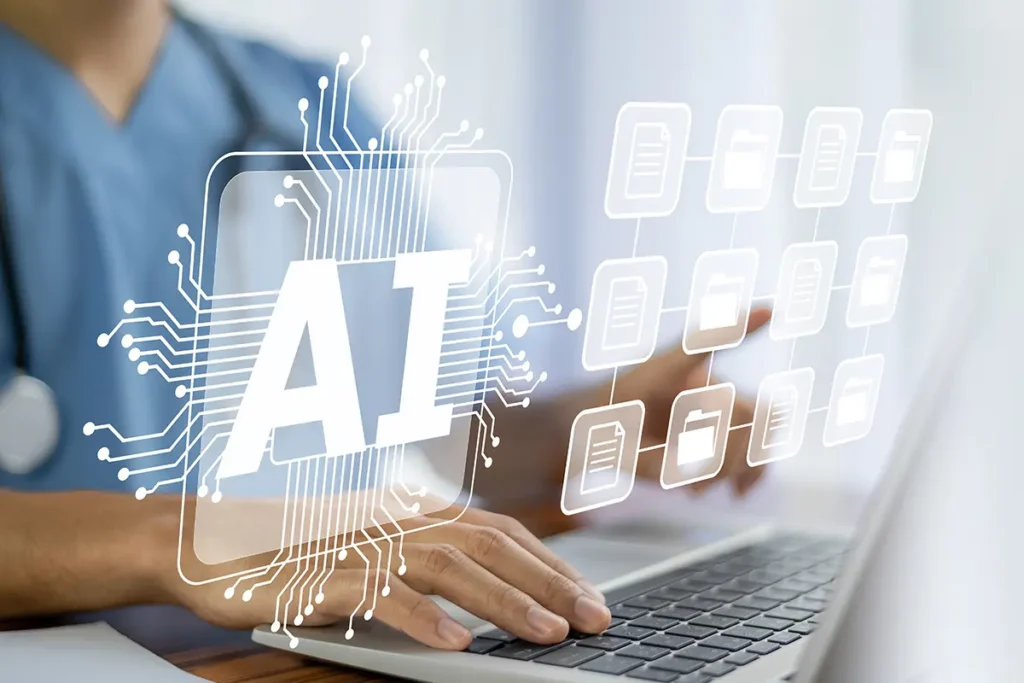20 New And Enhanced Roles AI Could Create

With the exploding use of ChatGPT and other artificial intelligence tools across industries, many skilled and knowledge workers worry about AI disrupting or even eliminating their jobs. However, tech experts assert that AI is just another in a series of tech tools that are intended to help humans—not replace them.
Indeed, as its use grows, AI is likely to require professionals with all-new skill sets to manage it, as well as enhance the need for the creative work produced by millions of skilled professionals already in the workforce. Below, 20 members of Forbes Technology Council share their predictions for new jobs AI could create, as well as current specialties that could become even more in demand with the rise of AI.
1. AI Trainer And Operator
Human know-how, creativity, intuition and EQ will remain essential in any company’s growth and progress. Further, AI will also create new jobs in the future. For example, AI systems will require AI operators and AI trainers. These professionals will use and train the systems and fine-tune them to achieve expected outcomes. Also, AI will need to be fed lots of data, so new opportunities will emerge in data engineering. – Simana Paul, SumUp
2. Sentiment Analyzer
Using generative AI to interpret blogs, posts, ratings and so on to understand customers’ sentiment—how they perceive your products and services—is nearly impossible, as these tools don’t have context. The collected content will need to be interpreted by a human being with emotions and contextual knowledge. – Gregory Todd, DXC Technology
3. Content Creator
Today, generative AI depends on content that is currently available, a lot of which is repeated and bland. In the future, there will be an unlimited demand for writers and influencers who can provide compelling, attention-grabbing content for AI systems to absorb. Think of today’s influencers, but to the nth degree. – Chris Briggs, Mitek Systems
4. AI-Generated Work Auditor
While AI is still in its infancy, it seems likely that our work in securing data will evolve with its maturation. Most security professionals are equipped to use AI tools, and while they increase efficiency, employees are doing the same job with the same stakes. However, given the potential associated risks of AI, we may see the creation of roles where humans must audit or analyze generated work. – Anand Ramanathan, Skyhigh Security
5. AI Prediction Analyzer
As AI evolves, we will likely see it democratize high-fidelity prediction while simultaneously driving its cost down significantly. With algorithms taking over the responsibility for prediction, humans will need to continue to lead when it comes to making judgments and decisions based on the predictions provided by the AI models. New roles could emerge in areas including ethics and psychology. – Mayank Pant, IKS Health
6. AI Input And Output Manager
We’ve already begun to see people who excel at writing prompts elicit compelling responses from today’s AI products, but that is a short-term role. As AI becomes more integrated into work processes, we will see roles for individuals who manage the inputs into and outputs from AI tools to guard against bias and privacy or security violations. – Patti Mikula, Hackworks Inc.
7. AI Integration Specialist
In the future, we may see the emergence of the AI integration specialist role. These professionals will help organizations smoothly adopt AI technology. The role will include understanding an organization’s workflow, identifying areas that could benefit from AI and customizing AI solutions to suit specific needs. – Sandro Shubladze, Datamam
8. AI Compliance Manager
With the increasing regulation and scrutiny surrounding AI applications, organizations will inevitably need dedicated compliance officers who are well-versed in the intricacies of AI-related rules and guidelines. These professionals will ensure that AI systems adhere to legal and ethical standards, handling data privacy, bias and algorithmic transparency to mitigate potential legal and reputational risks. – Cristian Randieri, Intellisystem Technologies
9. AI Ethicist
Building the future of ethical AI will require AI ethicists who specialize in implementing guidelines for all AI systems. They will ensure that these systems are designed and deployed in an unbiased manner and will eliminate issues around privacy, fairness, transparency and accountability. In so doing, all platforms created will align with societal values, mitigating risk across all industries. – Michael Koch, HubKonnect
10. VR Experience Designer
Virtual reality experience designer is a career that the increased use of AI and generative AI may launch in the upcoming years. The need for experts who can develop immersive and compelling virtual experiences will increase as VR technology develops. VR experience designers would be in charge of creating virtual worlds, simulations and interactive stories that offer distinctive and engaging user experiences. – Neelima Mangal, Spectrum North
11. AI Applications Developer
As AI models are created, organizations must create roles and hire professionals who specialize in fine-tuning AI models for specific applications across industries. In fact, this is something we’re already doing within my organization. With AI booming, companies will need people who can ensure best practices, performance and capabilities, all while keeping rising ethical considerations in mind. – David Ly, Iveda
12. AI Instructors
We’ll soon need more AI instructors—for humans, not for AI. With the increasing prevalence of AI in modern workplaces, AI instructors are needed by organizations to design comprehensive training programs that equip employees with the necessary skills and knowledge to work with AI tools and technologies effectively. – Kuk Jiang, ZEGOCLOUD PTE. LTD
13. Language Ingestion Optimizer
A new specialty—language ingestion optimization—will be analogous to the role of search engine optimization specialist in the current digital marketing landscape. When search engines changed how we found content on the internet, new roles were developed to help influence the rankings. The same will be true for generative AI models that ingest content. Companies will hire LIOs to get their brands featured in generative AI answers. – Adam Sandman, Inflectra Corporation
14. AI Prompt Engineer
A new role has already emerged as a result of generative AI that focuses on writing text rather than code. AI prompt engineers are being actively recruited to help organizations rapidly adopt AI. Working with cross-functional teams, their scope focuses on a wide range of natural language processing activities, including prompt optimization, to improve the outcome of large language models, as well as to conduct code and design review. – Shaheen Yazdani, Intercept
15. AI Output Verifier
AI has the potential to be used for a wide range of purposes, but it’s not without issues. While it’s theorized that AI will displace knowledge workers, if anything, generative AI tools will increase the need for skilled professionals who can verify the use, source and quality of the content derived from generative AI to ensure that it doesn’t infringe on copyright(s) and that it is factual, truthful and valuable to an organization’s brand. Human oversight is essential to maintain the integrity of services augmented by generative AI. – Leonard Lee, neXt Curve
16. AI Art Director
While it is true that AI can replace some jobs and can reduce the need for extensive design teams, there will always be a need for a human being to captain the ship. An AI art director will develop the vision for a project, tell AI what is wanted and ask for changes when necessary. – Nacho De Marco, BairesDev
17. AI Personality Designer
In the evolving AI landscape, the role of “AI personality designer” could emerge to craft engaging personalities for AI entities. Using the understanding of human psychology and culture, they’ll make AI interactions feel more human-like, turning AI from just a set of tools into a more meaningful digital companion. – Andrew Blackman, EZ Cloud
18. AI Security Engineer
AI will enable humans to create with only their imaginations as a limit. However, AI, like any other tool, can wreak havoc if it falls into the hands of malicious actors. New malware; viruses; sophisticated, targeted spam; and phishing attacks are rising with AI. An AI security engineer will be a critical new member of every organization. They will be responsible for securing against malicious use cases of AI. – Vishwas Manral, Cloud Security Alliance
19. AI-Assisted Visual Merchandiser
In the retail world, an AI-assisted visual merchandiser could play a crucial new role by using AI to analyze consumer behaviors and preferences. This role could leverage computer vision and machine learning techniques to create dynamic, personalized displays (static images for in-store usage or digital images for online promotion) to more effectively attract and engage with prospective customers. – Bernadette Nixon, Algolia
20. Tech Entrepreneur
AI tools lower the entry barrier to many professions. From an investment standpoint, AI changes venture startup dynamics. Previously, to create a mobile app, startups needed five to 10 people and more than $500,000 in seed capital. With AI tools writing code, a team of just one or two people with $20,000 could launch a similar app in weeks. It has never been easier to start a business—even for non-technical founders! – Alex Gudilko, AJProTech LLC


